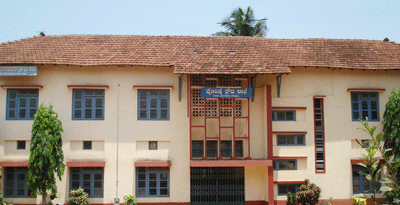 Kannada language will be a mandatory subject from classes one to 10 in schools affiliated to Karnataka board, and a compulsory medium of instruction from classes one to five
Kannada language will be a mandatory subject from classes one to 10 in schools affiliated to Karnataka board, and a compulsory medium of instruction from classes one to five
Yesterday’s law on medium of instruction passed by the Karnataka Legislature targets institutions run by Hindus and Kannadigas – it has the effect of banning English medium only in schools run by Hindus and Kannadigas in the State.
In April, 1994, the Karnataka government had come out with a law that had made mother tongue or Kannada as the compulsory medium of instruction in primary schools. At each and every turn, this law was decisively struck down by the courts. The courts had held that the Constitution of India gives to every citizen and parent the right to choose the medium of instruction of their choice. As English was the preferred medium of instruction in schools of Karnataka, it was English medium that won resoundingly in courts.
Yesterday, on the request of the Karnataka government, the Legislature has passed a bill to amend the Central Right of Children To Free And Compulsory Education Act, 2009 (RTE Act). Most of you have already heard about this RTE Act. There is a less known provision in this law – Section 29(2)(f) “medium of instruction shall, as far as practicable, be in child’s mother tongue”. The Karnataka Legis-lature has expanded this pro-vision by adding “Kannada” to it. The state government contends that by this expansion, it will be effectively forcing all RTE schools in Karnataka to drop English medium altogether because English is not the mother tongue of most children.
Let us assume that the government’s argument is legally valid. What would be result of this amendment? Firstly, the RTE Act is altogether inapplicable to minority schools. Now, who is a minority in Karnataka? Well, there are two types of minorities for this purpose – religious and linguistic. Whichever community is more than 50% of the population of a state is a majority and everybody else in that state is a minority. So, Hindus are a religious majority and Kannadigas are a linguistic majority in Karnataka and everybody else in the state is a minority. The Karnataka government already knows that the RTE Act is therefore, applicable only to schools established and administered by the Hindus and Kannadigas – majorities in the state. So, this new law has the effect of prohibiting English medium in schools that are run by the Hindus and Kannadigas in Karnataka! And, the Karnataka government is perfectly fine with English medium in schools run by non-Hindus or by non-Kannadigas! If there is a prize for the most unreasonable law made by an elected government anywhere in the world, this new law should definitely grab it.
If I have misrepresented the law in this public column, I invite the state government to complain to the Bar Council against me – my Bar Certificate number is KAR-659-2002. I don’t expect anything less from the state government if it chooses to attack my statement here as misleading or false. I know what I am saying here.
In this new political low, the Karnataka government has clearly targeted schools run by Hindus and Kannadigas by banning English medium therein. Shame on it!
The author is an advocate at the Supreme Court and legal counsel for Karnataka Unaided Schools Managements’ Association (KUSMA), an association of more than 1,800 private unaided schools in Karnataka





